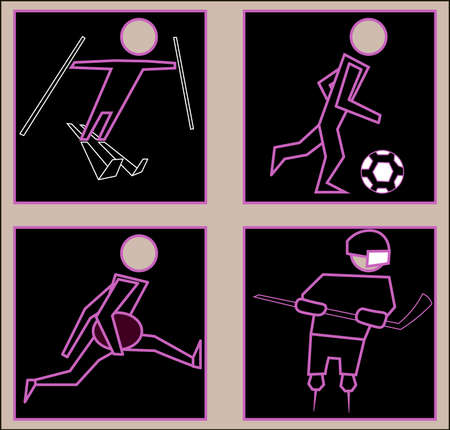Introduction to Adaptive Equipment
Adaptive equipment plays a crucial role in empowering individuals with diverse abilities to live more independently and confidently in their daily lives. In the UK, occupational therapists often recommend specific aids and devices tailored to the unique needs of each person, ensuring practical solutions that align with local lifestyles and available resources. Whether it’s for personal care, mobility, or household tasks, adaptive equipment bridges the gap between physical limitations and everyday activities, promoting autonomy and enhancing quality of life. This overview explores how thoughtfully chosen equipment not only supports independence but also fosters dignity, safety, and participation within the community—core values recognised across British healthcare settings.
Kitchen Aids for Safe and Easy Meal Preparation
When it comes to daily living, meal preparation is a central activity in many British households. Occupational therapists frequently recommend adaptive kitchen equipment to support individuals facing challenges due to reduced dexterity, strength, or mobility. These tools are specifically designed to enhance both safety and independence in the kitchen environment, making it easier to enjoy cooking and mealtimes with confidence.
Recommendations for British Kitchen-Specific Adaptive Tools
Below is a structured overview of key adaptive equipment commonly advised by occupational therapists for use in UK kitchens:
| Adaptive Tool | Purpose | Benefits |
|---|---|---|
| Kettle Tipper | Securely holds and tips a kettle with minimal effort. | Reduces risk of scalding, ideal for making tea safely—a staple of British culture. |
| Easy-Grip Cutlery | Cutlery with contoured, non-slip handles. | Improves control and reduces hand strain, helpful for those with arthritis or reduced grip strength. |
| Adapted Chopping Board | Boards with spikes and stabilising features. | Keeps food in place, allowing one-handed chopping and reducing the chance of cuts. |
| One-Touch Can Opener | Battery-operated device that opens tins automatically. | Makes opening canned goods effortless—especially useful for those with limited hand function. |
Enhancing Safety and Autonomy in the British Kitchen
The use of these adaptive tools is not merely about convenience; they play a crucial role in reducing accidents and fostering autonomy. For example, kettle tippers address the unique risks posed by traditional electric kettles common in British homes. Similarly, adapted chopping boards allow users to prepare vegetables for classic dishes like roast dinners or soups without relying on others. By integrating such practical solutions, occupational therapists empower individuals to maintain their culinary routines, reinforcing both self-sufficiency and participation in cherished cultural practices.

3. Bathroom and Personal Care Solutions
When considering occupational therapist recommendations for daily living, the bathroom is a crucial environment where adaptive equipment can make a significant difference. The risk of slips, trips, and falls is particularly high here, especially for individuals with reduced mobility or balance. Therefore, integrating practical solutions tailored to personal hygiene not only enhances safety but also fosters greater independence.
Bath Boards: A Foundation for Safe Transfers
Bath boards are a staple in British homes where stepping into a bath can pose challenges. These sturdy boards are designed to rest securely across the width of the bath, providing a stable seat for users to manoeuvre themselves in and out without needing to lower fully into the tub. Occupational therapists often recommend them to those who wish to maintain their bathing routine independently. In addition to offering support during transfers, bath boards can be used as a platform for washing, reducing unnecessary strain and minimising the risk of falls.
Grab Rails: Stability Where It Matters Most
Strategically placed grab rails are essential adaptive equipment recommended by occupational therapists across the UK. Whether installed beside the toilet, inside the shower, or next to the bath, grab rails offer vital support points that help individuals steady themselves during standing or transferring activities. Modern grab rails come in various finishes to complement home décor, demonstrating how practicality and style can coexist. Their installation is a straightforward yet highly effective intervention that promotes confidence and reduces anxiety around bathroom use.
Long-Handled Sponges: Extending Reach, Enhancing Independence
For many people managing conditions such as arthritis or limited shoulder movement, reaching certain parts of the body during personal care can be difficult. Long-handled sponges address this challenge by extending reach without requiring excessive stretching or bending. Occupational therapists routinely suggest these tools as part of a wider strategy to support self-care. Not only do they preserve dignity by enabling users to manage their hygiene needs independently, but they also reduce the likelihood of injury caused by overreaching.
Supporting Everyday Life
In summary, adaptive equipment like bath boards, grab rails, and long-handled sponges are not merely aids; they represent thoughtfully chosen solutions grounded in occupational therapy principles. By embedding these tools into daily routines, individuals can enjoy safer, more comfortable personal care experiences—crucial for maintaining quality of life at home across the UK.
4. Mobility and Movement Assistance
Navigating the unique layouts and features of British homes—often characterised by narrow hallways, steep staircases, and compact living spaces—can present daily challenges for individuals with reduced mobility. Occupational therapists recommend a tailored approach to selecting adaptive equipment that aligns with both the individual’s needs and the architectural quirks of their home.
Commonly Recommended Mobility Aids
Mobility aids are essential for safe and independent movement around the house. The following table summarises key options:
| Equipment | Main Function | Best Suited For |
|---|---|---|
| Walking Frames (Zimmer Frames) | Provide stability on flat surfaces | Individuals needing general support indoors |
| Transfer Boards | Aid in moving between surfaces, e.g., bed to chair | People with limited lower limb strength or wheelchair users |
| Stairlifts | Facilitate access between floors | Those unable to manage stairs safely |
Practical Considerations in British Homes
- Narrow Doorways: Choose slimline walking frames or folding models that can easily manoeuvre through tight spaces.
- Multi-level Living: Stairlifts are invaluable for homes with multiple storeys. Modern stairlifts can be customised for curved or narrow staircases often found in Victorian or Edwardian properties.
- Thresholds and Steps: Portable ramps may be needed at door thresholds or single steps within older houses.
Occupational Therapist’s Tips for Effective Use
- Have a professional assessment to ensure the chosen aid matches both physical needs and home layout.
- Regularly review the fit and condition of equipment to maintain safety.
- Consider combining aids (e.g., transfer boards plus grab rails) for smoother transitions between activities.
Conclusion: Adapting with Confidence
The right mobility aid not only fosters independence but also increases confidence when moving around one’s home. By understanding the specific requirements imposed by British housing styles, occupational therapists can provide recommendations that truly enhance day-to-day living.
5. Adaptive Equipment for Leisure and Social Participation
Promoting Holistic Well-Being through Meaningful Activities
Occupational therapists in the UK emphasise that holistic well-being is achieved not only by managing daily self-care but also by remaining engaged in leisure, hobbies, and social participation. Adaptive equipment plays a pivotal role in enabling individuals with varying abilities to enjoy their favourite pastimes and maintain social connections, which are essential for mental health and overall quality of life.
Examples of Adaptive Tools for Leisure Activities
For those who love gardening—an immensely popular hobby across Britain—tools with extended handles and easy-grip adaptations allow continued enjoyment without excessive bending or strain. Raised garden beds are also recommended for wheelchair users or those with limited mobility. In the realm of arts and crafts, weighted pens, ergonomic paintbrushes, and hands-free magnifiers can help individuals pursue creative activities despite challenges such as arthritis or visual impairment.
Supporting Hobbies and Social Events
For music lovers, adaptive musical instruments such as one-handed keyboards or strum sticks make it possible to keep playing despite reduced dexterity. Board games remain accessible through cardholders, dice rollers, or large-print versions, ensuring everyone can join family game nights or community club meetings—a cherished aspect of British culture.
Facilitating Community Engagement
Adaptive equipment such as portable ramps and personal amplifiers empower individuals to attend local fêtes, church gatherings, or theatre performances—cornerstones of UK community life. Similarly, lightweight folding mobility scooters enable spontaneous visits to parks or seaside promenades. Occupational therapists highlight that these tools foster independence and reduce isolation, supporting both physical and emotional well-being.
Therapist’s Perspective: Personalisation is Key
An occupational therapist’s recommendations are always tailored to individual interests and needs. By integrating adaptive equipment into leisure and social contexts, people across the UK can continue to participate fully in the activities they love—whether it’s allotment gardening, crafting with friends at a local centre, or enjoying fish and chips at the seaside—thereby enriching their daily lives beyond basic routines.
6. Considerations for Choosing and Accessing Equipment in the UK
When selecting adaptive equipment to support daily activities, it is vital to undertake a thorough assessment of individual needs. Occupational therapists recommend an evidence-based approach that considers the user’s physical abilities, home environment, and personal preferences. Below, we outline the essential steps and resources available within the UK context.
Assessing Individual Needs
An initial assessment by a qualified occupational therapist (OT) is key to ensuring equipment is tailored to the user’s specific challenges and goals. The OT will analyse functional limitations, risk factors, and the suitability of various devices. This person-centred process helps avoid unnecessary purchases and ensures long-term satisfaction with any recommended aids.
NHS Access Pathways
The NHS provides a well-established route for obtaining adaptive equipment. After an OT assessment—often arranged through your GP or local social services—essential items such as grab rails, perching stools, or bath lifts can be supplied on loan free of charge. Wait times may vary depending on local authority resources and urgency of need. For more bespoke or complex solutions, referrals to specialist NHS services may be required.
Trusted British Suppliers
If seeking private purchase options, it is advisable to use reputable suppliers registered with the British Healthcare Trades Association (BHTA). Well-known national retailers include Ability Superstore, NRS Healthcare, and Complete Care Shop. Many local mobility shops also offer demonstration facilities and advice tailored to UK homes.
Funding Options
For those not eligible for NHS provision or seeking additional items, several funding routes exist:
- Disabled Facilities Grant (DFG): Means-tested grant from local authorities to adapt homes for long-term needs.
- Charitable Organisations: Groups like Turn2us, Independence at Home, and The Family Fund may provide grants or financial support.
- VAT Relief: Many adaptive products are zero-rated for VAT when purchased by individuals with chronic illness or disability; suppliers can advise on eligibility.
Signposting for Further Advice
Your GP, local council adult social care team, or community occupational therapy service can provide guidance on assessments and funding applications. Additionally, organisations such as Living Made Easy offer impartial product advice tailored to British standards and lifestyles.
The right adaptive equipment can significantly improve independence and wellbeing—ensure your choices are informed by professional input, trusted suppliers, and available support schemes within the UK.


